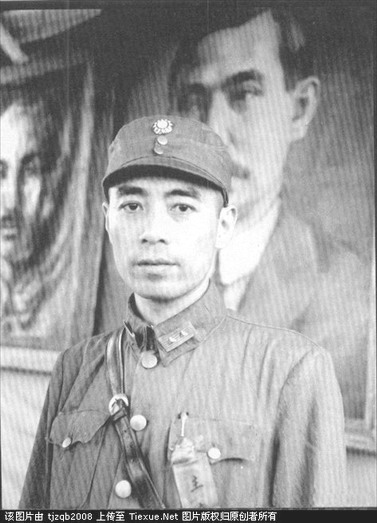Zhou Enlai was born March 5, 1898, in Huaian County, Jiangsu Province. Upon graduating from Tianjin Middle School, he studied at Waseda and Nippon universities in Japan (1917–1918), before enrolling in Nankai University in Tianjin. He rarely attended classes, however, becoming immersed in student mobilization as one of the organizers of the Tianjin Students’ Union and editor of the union’s newspaper, Tianjin Student. Hence he also became involved in the May Fourth movement, for which he (with twenty-eight others) was arrested and briefly imprisoned.
EDUCATION ABROAD
In 1920 Zhou was selected to go to France on a work-study program (where he actually did little of either, dedicating himself rather to political organization in France and Germany). For the next four years he was chair of the Chinese Socialist Youth League (in which capacity he worked closely with Deng Xiaoping, who edited the league newspaper, Red Light, and succeeded him to the chairmanship). Zhou also joined the Chinese Communist Party (CCP) when a branch was formed in 1922. There were then two thousand Chinese students in France, some two hundred each in Belgium and England and between three hundred and four hundred in Germany, and he helped organize their recruitment and later departure for study in Moscow.
Upon his return to China, Zhou also joined the Guomindang (Nationalist Party or GMD), which included the Chinese Communist Party (CCP) as a “bloc within” a United Front that was collaborating to overcome warlordism and restore national unity and order. Though that coalition fell apart upon the achievement of unity in the Northern Expedition in 1927, Zhou was elected to both the CCP Central Committee and the Politburo in 1927; he was to remain a member of both bodies until his death in 1976, completing an amazingly uninterrupted leadership tenure of nearly half a century. He was concurrently also premier of the Central People’s Government from 1949 to 1976 and China’s first foreign minister from 1949 to 1958, as well as vice chair and later chair of the Chinese People’s Political Consultative Conference (CPPCC) from 1949 to 1976.
Born a member of China’s traditional elite, scion of a déclassé scholar-gentry family, Zhou bore with him the gracious manners and quiet self-assurance of his class. As a student activist in Japan and later in China he learned how to use his considerable interpersonal charm and rhetorical skills to persuade and mobilize his peers. He married Deng Yingchao (1904–1992), his revolutionary collaborator at Nankai, in 1925 and remained faithful to her until his death in 1976; though the couple remained childless, they adopted many orphaned children of “revolutionary martyrs,” including the future premier Li Peng. During his bachelor days in Germany, Zhou reportedly also sired a child who was killed in the Wehrmacht during the Nazi offensive against the Soviet Union at the time of the second United Front.
Zhou returned to China in 1924, a seasoned Party organizer. He showed a prescient early interest in military affairs becoming director of the CCP Guangdong Military Affairs Department, director of training at the National Revolutionary Army Political Training Department, and acting director of the Whampoa Military Academy’s Political Department in 1924. Chiang Kai-shek (Jiang Jieshi) then named Zhou political commissar of the First Division, First Corps during the successful Eastern campaign of 1925. Though the United Front was dissolved and Zhou was relieved of those positions on the eve of the Northern Expedition (1926–1927), he pioneered thereafter in building the Red Army during the 1927–1931 urban uprisings, demonstrating considerable organizational skill but little strategic sense.
During the ensuing Jiangxi period, as GMD armies launched five “encirclement and annihilation campaigns” against the Jiangxi Soviet, Zhou found himself contending with Mao Zedong for military leadership. In December 1931, he replaced Mao as secretary of the First Front Army with Xiang Ying (c. 1898–1941), and as political commissar of the Red Army. Although Zhou managed in this capacity to fend off the first four GMD attacks, the Red Army’s defeat and subsequent Long March (1934– 1935) resolved the strategic issue in Mao’s favor. Yet by gracefully yielding control of the CCP Military Affairs Commission to Mao Zedong at the watershed Zunyi Conference (1935), Zhou retained his place within the elite and became Mao’s always useful collaborator and facilitator—though Mao sometimes pointedly reminded him of his previous opposition.
Zhou Enlai was ever the consummate representative of the CCP in negotiations with outside forces. Thus he was the CCP’s chief contact with the dissident GMD commander Zhang Xueliang (c. 1901–2001) when the latter placed Chiang Kai-shek (Zhou’s former commander at Whampoa) under house arrest in Xi’an in 1936. Coining the slogan, “Chinese should not fight Chinese but a common enemy: the invader,” Zhou managed (with Soviet support) to avert Chiang’s execution (which Mao had favored) and broker a deal that would eventuate in formation of the second United Front in 1937.
During much of the ensuing War of Resistance against Japan, Zhou remained in the wartime capital of Chongqing (Chungking) as the highest CCP official in the National United Front government, not only negotiating CCPGMD relations but also establishing broad contacts among leaders of the small bourgeois democratic parties. He also retained close contact with Wang Ming and the Returned Student grouping, much to Mao’s ire, but he used selfcriticism to survive attack in the 1942–1944 Yanan Rectification Movement [Zhengfeng]. Zhou also set up a major Communist news and propaganda center, later to be institutionalized as the New China News Agency (Xinhua She). After the Japanese defeat, the CCP and GMD alliance disintegrated despite Zhou’s efforts to hold it together, giving rise to renewed civil war. Yet for myriad economic and political reasons, the Communist victory over corrupt and overextended GMD forces proved unexpectedly swift.
